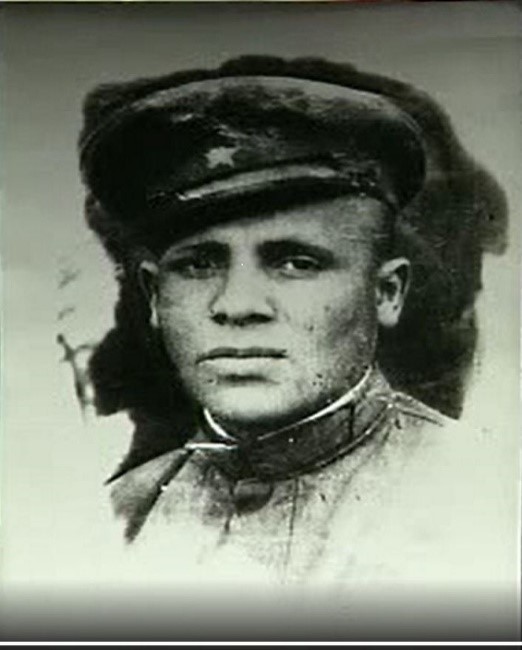Drizo Iakov was born in Nykolayiv, southern Ukraine, in 1920, the third of four children. His father Meier worked on the town's education board; his mother was a homemaker. In the mid-1920s, the family planned to immigrate to Argentina, where they had close relatives, but the authorities did not grant them permission to leave the country. After finishing nine classes of a Ukrainian school, Iakov moved to Odessa, where he enrolled in a technikum (college) for political education. In October 1940, Iakov Drizo was drafted into the Red Army and attached to an automobile battalion. Initially, he was supposed to become a military driver, but in February 1941 he was assigned to a course for junior political commissars [politruki] in Radomyshl, near Zhytomyr, northwestern Ukraine. In June 1941, the Soviet-German War broke out, and all the cadets of the course were sent to the front lines. Drizo was attached to the 15th Separate Tank Regiment, where he became the politruk of a company. In a short time, his regiment lost almost all of its tanks, and the politruk Drizo fought on as a common rifleman. In August-September 1941, Drizo took part in the defense of Kiev, and he was then transferred to Pryluky, east of Kiev, where the 41st Division was trying to retake the town. The operation failed, and the division retreated eastward. On October 3, 1941, Drizo was taken prisoner by the enemy near Poltava.
As Iakov Drizo would later recall 1, the POWs were lined up, and a German officer ordered them in impeccable Russian: "Communists, Yids, commissars – three steps forward!" Iakov – who happened to be a Communist, a "Yid", and a political commissar, all at the same time – did not step forward. He had a non-Jewish appearance, and this fact saved his life.
Drizo spent only eight days in German captivity, and was then able to escape from a column of POWs. Having procured civilian clothing, he went to Odessa, where his non-Jewish bride lived. His bride's family drove him away from their house, and Drizo was forced to move from Odessa to the town of Kotovsk (present-day Birzula), north of Odessa. He remained in Kotovsk until the liberation of the town on March 31, 1944. After the liberation, Drizo went to Mykolayiv, showed up at the recruitment office, and told them that he was a Red Army serviceman and politruk, and that he wished to continue fighting against the enemy. Instead of being allowed to reenlist in his former rank, Drizo was sent to a special camp in Moscow Oblast, where he underwent a lengthy screening. In December 1944, Drizo was attached to the 27th Separate Shock Battalion [shturmovoi batalion], which was staffed by men who had spent a long time under enemy occupation or in captivity. The battalion was deployed on the 2nd Baltic Front. On January 27, 1945, during the fighting for the naval port of Liepaja, Latvia, Drizo was seriously wounded. Therefore, he met V-E Day convalescing in a hospital.
Iakov's parents, his sister, and younger brother survived the war in the Soviet interior. His elder brother David, who had been drafted into the Red Army before the war, was killed in action in Slovakia. After the war, Drizo lived in various towns in Ukraine and worked as a schoolteacher.
- 1. YVA O.93/49647







